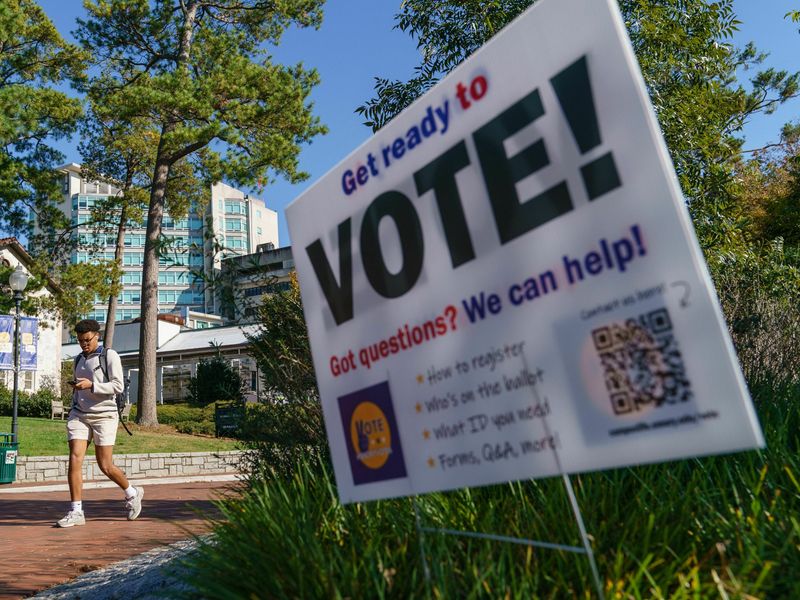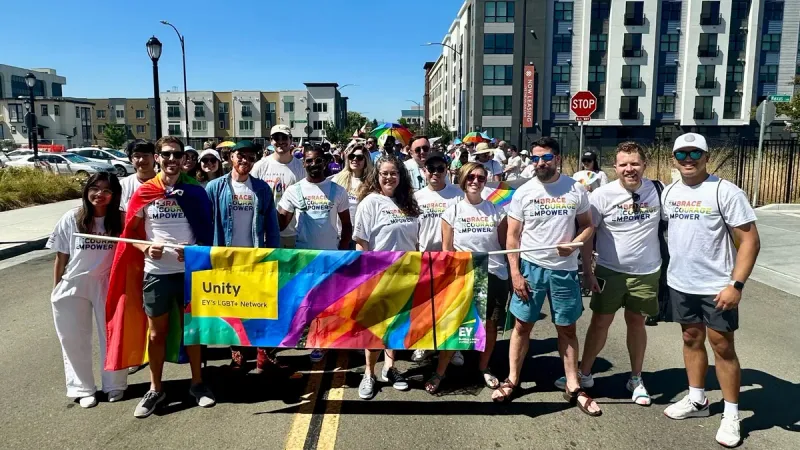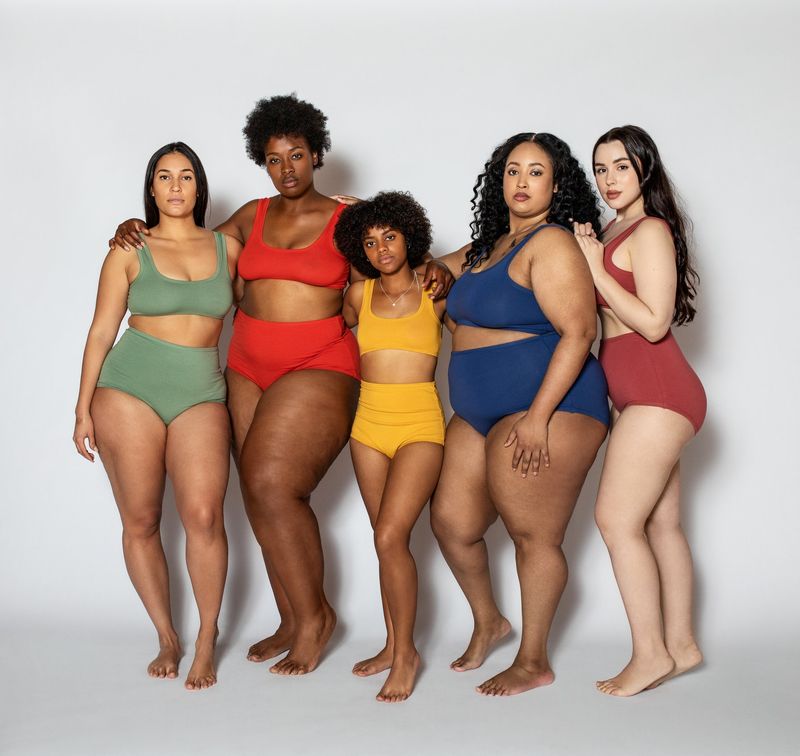Generation Z, born between the mid-1990s and early 2010s, is reshaping societal norms with a fresh perspective.
Their influence is evident in the cultural, environmental, and technological realms, challenging the status quo.
This blog explores t13 significant shifts driven by Gen Z’s values, highlighting their impact on the world around us.
1. Mocking Non-Binary Pronouns
Mocking non-binary pronouns is no longer acceptable, thanks to Gen Z’s advocacy. This generation values inclusivity and recognizes the spectrum of gender identities beyond the binary. Acknowledging and respecting individuals’ chosen pronouns is now a social expectation.
The shift towards recognizing non-binary pronouns is vital for creating a supportive environment. It encourages open-mindedness and acceptance, fostering a sense of belonging for all.
Gen Z’s active promotion of gender inclusivity is reshaping societal norms, making respect for diverse identities the new standard. Ignoring this change is not an option.
2. Ignoring Mental Health Issues
Ignoring mental health issues is a relic of the past. Gen Z has prioritized mental health awareness and destigmatization. Their open conversations about anxiety, depression, and other mental health challenges have brought these issues to the forefront.
This generation has embraced therapy and self-care as essential parts of life. They actively share resources and support systems through social media, making mental health care accessible.
It’s now clear that addressing mental health openly is crucial, and Gen Z’s commitment to this cause is transforming perceptions and encouraging positive change.
3. Disregarding Sustainable Fashion
Disregarding sustainable fashion is no longer an option. Gen Z has embraced eco-friendly clothing choices, driving the fashion industry towards sustainability.
Their preference for thrift stores, upcycling, and eco-conscious brands is reshaping consumer behavior.
This shift is not just about style; it’s a statement against fast fashion’s environmental impact. By choosing sustainable options, Gen Z is advocating for a greener planet.
Their commitment to ethical fashion has sparked a movement, encouraging others to consider the environmental consequences of their clothing choices. It’s a trend that’s here to stay.
4. Refusing to Adapt to New Technology
Refusing to adapt to new technology is becoming untenable. Gen Z is at the forefront of technological advancement, effortlessly navigating the digital landscape. Their affinity for innovation is driving the adoption of cutting-edge technologies.
From virtual reality to AI-driven applications, Gen Z embraces tech as an integral part of life. They are quick to learn and adapt, expecting the same from those around them.
This readiness to embrace new tech is reshaping industries and creating a more interconnected world. Falling behind is not an option in this fast-paced environment.
5. Overlooking Climate Change
Overlooking climate change is no longer viable. Gen Z’s commitment to environmental activism is driving awareness and action. They are vocal about the urgent need for sustainable practices and policies to combat climate change.
This generation’s dedication to the planet is inspiring widespread change. From organizing global climate strikes to promoting eco-friendly lifestyles, Gen Z is at the forefront of environmental advocacy.
Their efforts are influencing governments, corporations, and individuals to prioritize sustainability, making climate change a central issue. Ignoring these voices is no longer an option.
6. Avoiding Political Participation
Avoiding political participation is no longer an option. Gen Z is politically active and informed, recognizing the power of their vote and voice. They are passionate about issues like climate change, racial justice, and equality.
This generation is leveraging social media to mobilize and educate, encouraging peers to engage in the democratic process. Their enthusiasm for political involvement is revitalizing civic engagement.
Gen Z’s determination to effect change is shaping the political landscape, making it clear that active participation is essential for progress. Sitting on the sidelines is no longer acceptable.
7. Neglecting Digital Privacy
Neglecting digital privacy is increasingly unacceptable. Gen Z is acutely aware of online security, valuing their digital privacy. They understand the significance of data protection and the risks associated with digital life.
This generation actively uses tools and practices to secure their personal information. They are vocal advocates for stronger privacy regulations and transparent data usage policies.
Gen Z’s focus on digital privacy is influencing tech companies and governments, demanding accountability and ethical data practices. It’s a shift towards greater awareness and protection in the digital age.
8. Underestimating Social Media Influence
Underestimating social media influence is a thing of the past. Gen Z understands the power of these platforms to shape opinions and drive change. They leverage social media to raise awareness on issues, connect with others, and influence the world.
This generation has mastered the art of digital storytelling, using visual content to engage audiences. Social media is their tool for activism, education, and entertainment.
Gen Z’s expertise in navigating social media landscapes is reshaping communication and marketing strategies. It’s a force that continues to redefine connectivity and influence globally.
9. Ignoring LGBTQ+ Rights
Ignoring LGBTQ+ rights is no longer an option. Gen Z is fervently advocating for equality and acceptance. They champion LGBTQ+ rights, challenging discrimination and promoting inclusivity in all aspects of life.
This generation’s activism is visible in pride events, online campaigns, and everyday actions. Their efforts are making waves, influencing legislation and societal attitudes towards LGBTQ+ communities.
Gen Z’s commitment to LGBTQ+ rights is reshaping the conversation around identity and love, ensuring that acceptance and equality are at the forefront. It’s a movement that is here to stay.
10. Rejecting Veganism and Plant-Based Diets
Rejecting veganism and plant-based diets is becoming passé. Gen Z is embracing these dietary choices for their health benefits and environmental impact. Plant-based diets are gaining popularity, driven by this generation’s consciousness.
This shift is not just a trend; it’s a commitment to sustainability and animal welfare. Gen Z is influencing the food industry, demanding innovative, eco-friendly options.
Their enthusiasm for plant-based living is inspiring others to rethink their dietary habits. It’s a lifestyle choice that aligns with their values of health and sustainability, setting a new standard for future generations.
11. Ignoring Body Positivity Movement
Ignoring the body positivity movement is no longer acceptable. Gen Z is at the forefront of challenging outdated beauty standards, promoting self-love and acceptance for all body types.
This generation uses social media platforms to celebrate diversity in appearance, sharing empowering messages and images that break conventional norms.
Gen Z’s dedication to body positivity is reshaping perceptions, encouraging people to embrace their natural selves. It’s a powerful movement fostering confidence and inclusivity, dismantling harmful stereotypes. The celebration of all bodies is now a fundamental part of their cultural fabric, influencing future generations.
12. Ignoring Intersectional Feminism
Ignoring intersectional feminism is no longer viable. Gen Z is championing a feminist movement that recognizes the interconnected nature of social categorizations. They understand the importance of addressing the diverse experiences of women across different identities.
This generation is actively promoting gender equality by acknowledging and tackling the complexities of race, class, and sexuality within feminism.
Gen Z’s commitment to intersectional feminism is reshaping the movement, ensuring that all voices are heard and valued. It’s a progressive approach that is redefining feminism, making it more inclusive and impactful.
13. Dismissing the Gig Economy
Dismissing the gig economy is increasingly unrealistic. Gen Z is redefining work, embracing gig roles for their flexibility and opportunities. This generation values the ability to work on diverse projects and maintain work-life balance.
The gig economy offers a platform for creativity and entrepreneurship, aligning with Gen Z’s desire for autonomy. They are leveraging technology to create new career paths and income streams.
Gen Z’s acceptance of the gig economy is transforming traditional employment models, emphasizing adaptability and innovation. It’s a shift that’s shaping the future of work, offering endless potential.













